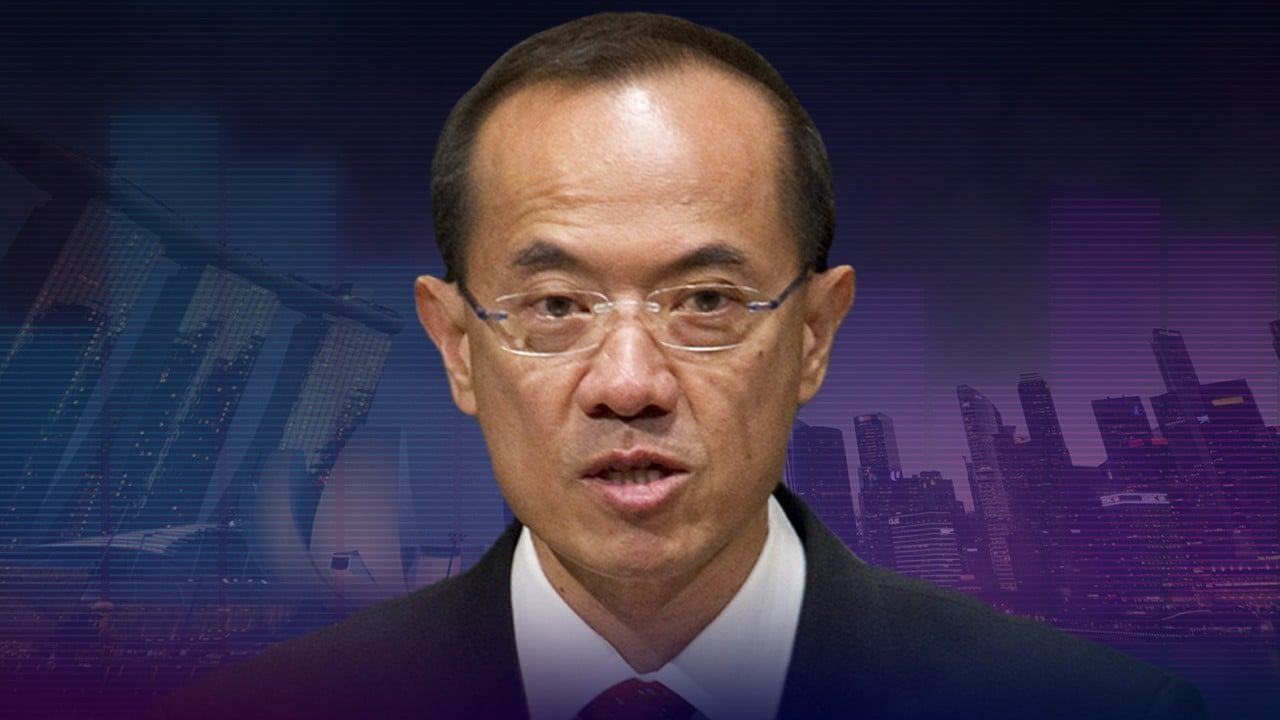
‘My answer is no’: Singapore’s George Yeo rules out presidential run
- Former top diplomat has repeatedly denied he would contest the presidential election, which must be held no later than September 13
- In a lunchtime talk, Yeo said Hong Kong would continue to play a key role in China’s interaction with the world and that Beijing ‘will try to make Hong Kong comfortable for the US’
The bar for the presidential poll is high and Yeo, a former stalwart of the ruling People’s Action Party (PAP), has been seen by some observers as among a handful of establishment-friendly individuals eligible to run in the contest.
Speaking at the Foreign Correspondents’ Club in Hong Kong on Thursday, in a lunchtime talk about the second of his three-book series Musings, Yeo – a Hong Kong permanent resident – was asked if he would contest the presidential vote or re-enter party politics by taking part in general elections.
“[My answers are] ‘no’ to both questions,” Yeo responded, without elaborating.

Last year, the former top diplomat told Singapore news site TODAY that he had said “repeatedly, both privately and publicly, that I am not standing in the presidential election”.
An election must be held no later than September 13 following the end of incumbent President Halimah Yacob’s six-year term.
Largely ceremonial, the Singapore presidency – elected by universal suffrage since 1993 – wields some veto powers on the appointment of key bureaucrats and the use of the country’s deep financial reserves.
To contest the polls, ex-public officials must have held senior positions – including elected office – while private sector nominees must have managed at least S$500 million (US$370 million) in shareholder equity.
There is no indication yet if President Halimah will seek re-election.
“There is a view that depending on who they float, if I were to run they would be in serious trouble and could lose,” said Lee Hsien Yang, who has said he fears political persecution by his brother, the prime minister.

This was because “whatever discomfort Hongkongers may have felt over the events of 2019 is nothing compared to the fear in Hong Kong in 1989”, he said, referring to the reaction to the bloody Tiananmen crackdown of that year.
Many among the “few tens of thousands of Hongkongers” who left for Singapore in 1989 later returned to Hong Kong, Yeo said.
“Hong Kong has bounced back smartly then, I have no doubt it will bounce back [this time again],” he said.
When asked about the competition between Hong Kong and Singapore, Yeo said the city state’s recent policies “were not motivated by what Hong Kong did … we were just trying to survive”.
“Hong Kong was trapped for a period of time because [mainland] China wanted to shut the front gate so that the back gate could remain open. There was a period when Hong Kong was in a twilight zone,” Yeo explained.
“But now you are opening up again. Within a few months you will be back to normal,” he said.
He said China must continue to ensure “substantial American interests are rooted in Hong Kong, interests that are influential in Washington, so that the geopolitics can be influenced in a positive and constructive way”.
Hong Kong has become one of the focal points for US-China tensions since 2019. Washington has enacted a slew of sanctions on Hong Kong and mainland officials for their roles in implementing the city’s national security law.
Two US senators last month introduced a bill to close Hong Kong’s trade offices in America if the White House decides Beijing has undermined the city’s autonomy.


